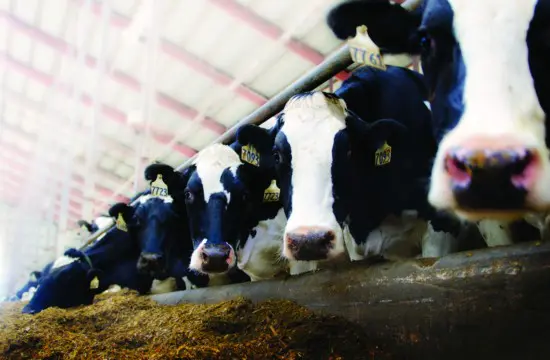Developing a manure management strategy can have practical benefits for your operation. Careful handling of livestock manure can preserve its full potential as a fertilizer for crops, while also shielding waterways from runoff and improving air quality.
Why implement a manure management strategy on your farm?
Here are a few reasons:
– A properly managed manure application can improve soil quality and promote carbon sequestration by building or maintaining organic matter in the soil.
– If you are able to make full use of your manure, you can often reduce the need to purchase additional commercial fertilizer for your crops.
– Using a manure management product can help ensure that nutrients such as nitrogen and phosphorus are available for the entire growing season and keep manure liquefied for easier pumping and spraying.
– By making fertilizer applications available to plant uptake when crops need nutrients, you can reduce the potential for nutrient runoff and improve water quality.
– Manure management products can reduce odor and improve air quality (and improve your relationship with your neighbors).
Sound like something that might work on your operation? If so, here are a few tips:
– First, test your soil to see what areas of your field will benefit most from additional manure applications.
– Collect manure from livestock houses as frequently as possible. It may sound like an inefficient use of time or labor – it isn’t. Frequent pit and lagoon cleanings ensures the health of your animals and workers and optimum nutrient value from manure.
– Take frequent samples of your manure to accurately determine nutrient content.
– Calculate the appropriate rate of manure application for your fields. Applying too much manure can lead to excess nitrogen and phosphorus, which is then lost to the environment or moved offsite, contaminating nearby waterways.
– If you don’t have one already, consider construction of a lagoon to collect and hold manure. These earthen or concrete structures are perfect for long-term storage and prevent leakage into ground water.
Liquid and solid manure require different application methods. Whether applied as a liquid through irrigation or a solid via manure spreader, both can benefit crop health and improve yield.
Proper management of livestock manure may not always be the most straightforward, but when done properly it can make your farm more efficient and profitable.


